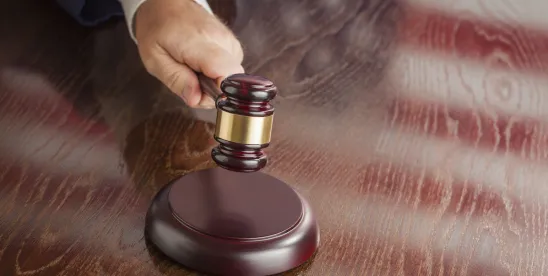Social media’s influence on American society carries major implications for the public’s perception of current events. With headlines reaching millions of consumers within minutes, public outrage over racially charged crimes, instances of alleged police misconduct, and other hot-button topics may result in protests, riots, and strikes among communities nationwide. According to Pew Research Center, statistics from a 2023 study revealed most Americans use social media platforms such as YouTube and Facebook, while a considerable percentage use Instagram and TikTok. With the looming threat of social backlash, violence, and the dreaded “cancel culture,” is it possible for a media-obsessed society to remain unbiased as potential judges, attorneys, and members of a jury for highly publicized trials? Is the concept of a fair and impartial trial truly feasible in 2024?
The National Center for State Courts (NCSC) explains that members of the jury are responsible for remaining fair and impartial, avoiding external influence, protecting confidentiality, preserving the integrity of the trial process, and respecting judicial authority. Round-the-clock press releases, viral posts, and news updates often relay details of high-profile criminal trials that were previously disclosed throughout the trial process. An October 2023 article written by Rebecca Melnitsky reports that during a New York State Bar Association Continuing Legal Education course, presenters revealed that 46% of questionnaire participants were willing to search defendants in a court case on social media if serving on a jury. How can we be certain that jurors aren’t routinely taking to social media to gather information on defendants or witnesses, or aren’t being swayed by social and political pressures during the process of deliberation?
Is the concept of a fair and impartial trial truly feasible in 2024?
It’s no secret that the memorable six-week Depp v. Heard defamation case quickly became a household topic of conversation in 2022, with millions of viewers livestreaming the trial for hours on end. Famous actor, film producer, and director Johnny Depp sued former partner and fellow actress Amber Heard for $50 million in damages for defamation after Heard accused him of domestic violence and abuse. Heard countersued Depp for $100 million in damages. After almost two days of deliberations, the jury awarded Depp $10 million in compensatory damages and $5 million in punitive damages. Heard, however, was only awarded $2 million in compensatory damages and no punitive damages.
With social media influencers providing constant trial updates on various social media platforms, in addition to sharing their personal opinions and biases on the trial, some speculate that the tension surrounding the trial carried the potential to inadvertently cause jurors to cave to social pressures and affect the integrity of deliberation. Is it possible that jurors feared that a verdict perceived to be unfavorable to some onlookers would have resulted in subsequential social fallout and public outrage? What is the likelihood that social media influencers were being financially incentivized by sponsorships and brand deals to take a particular stance on the trial? Were jurors also concerned that their individual involvement in the trial would affect their personal lives outside of the case?
Ensuring that jurors and litigants remain mindful of the potential impact of possible biases received from external media sources is imperative in mitigating the risk of external influences negatively impacting fair and impartial trials. According to a news release, a federal judiciary committee proposed a new set of instructions to federal judges in September 2020 in order to address the issue. As an update to the original 2012 guidelines, the 2020 version urges judges to remind jurors about the risks of allowing social media to permeate the litigation process in deliberation. The committee emphasized the importance of communicating to jurors about how easily these influences can occur and to be mindful of not allowing the influx of information from technology, smart phones, and social media to override their responsibilities in the court room. As social media continues to infiltrate the lives of Americans, Law Meets Science will stay abreast of updates to jury regulations and guidelines on how to preserve fair and unbiased trials.
This article was authored by Amy Hill



 />i
/>i
